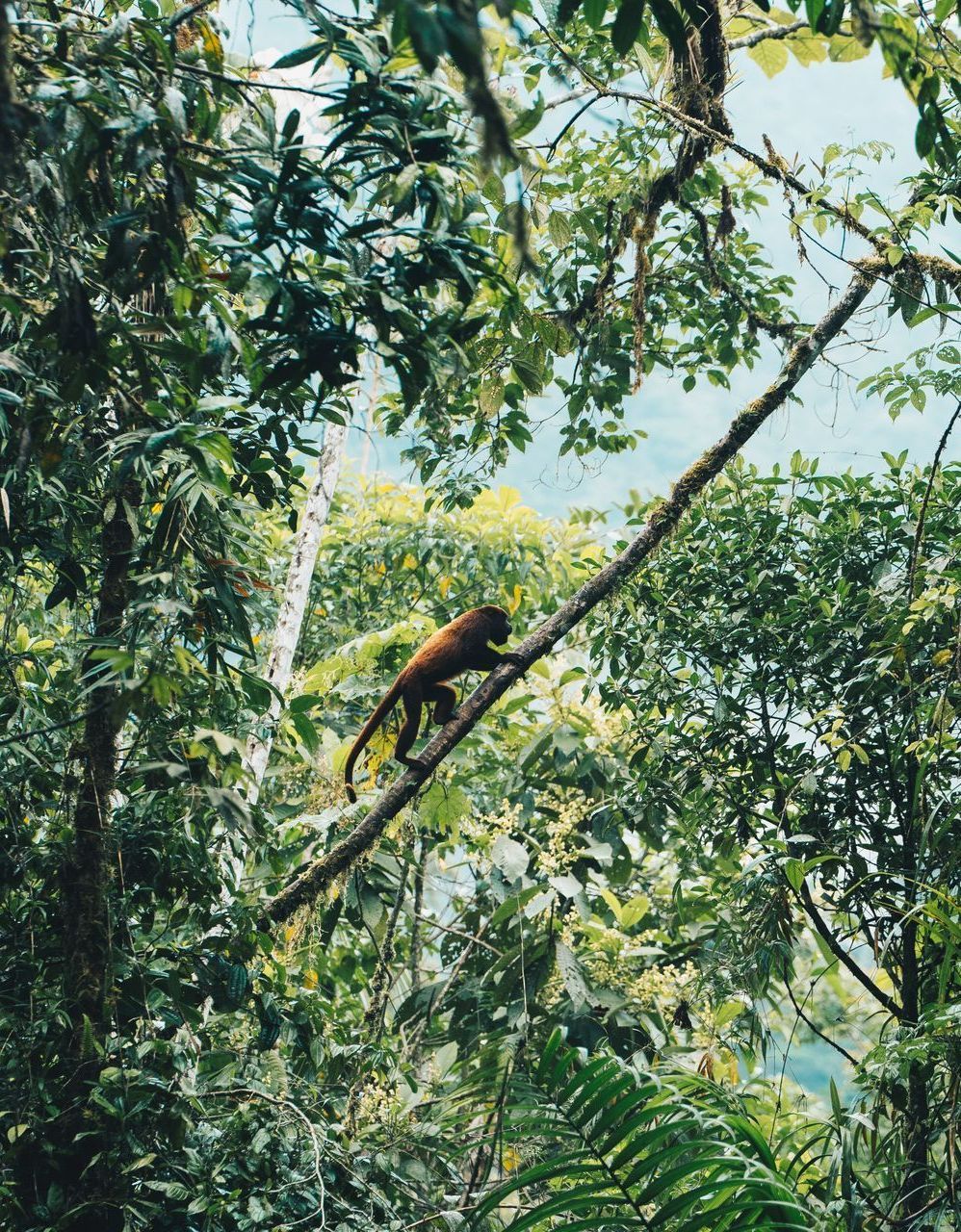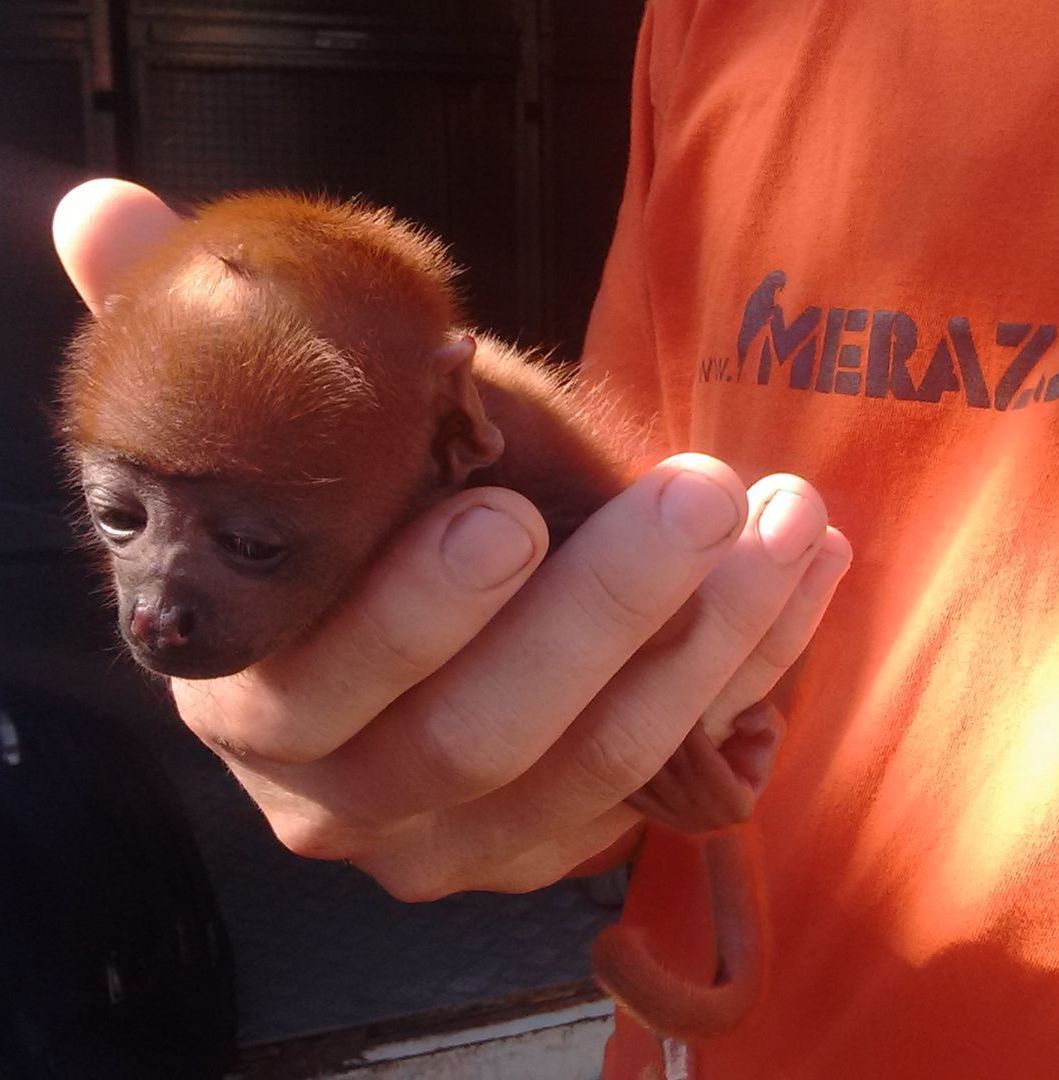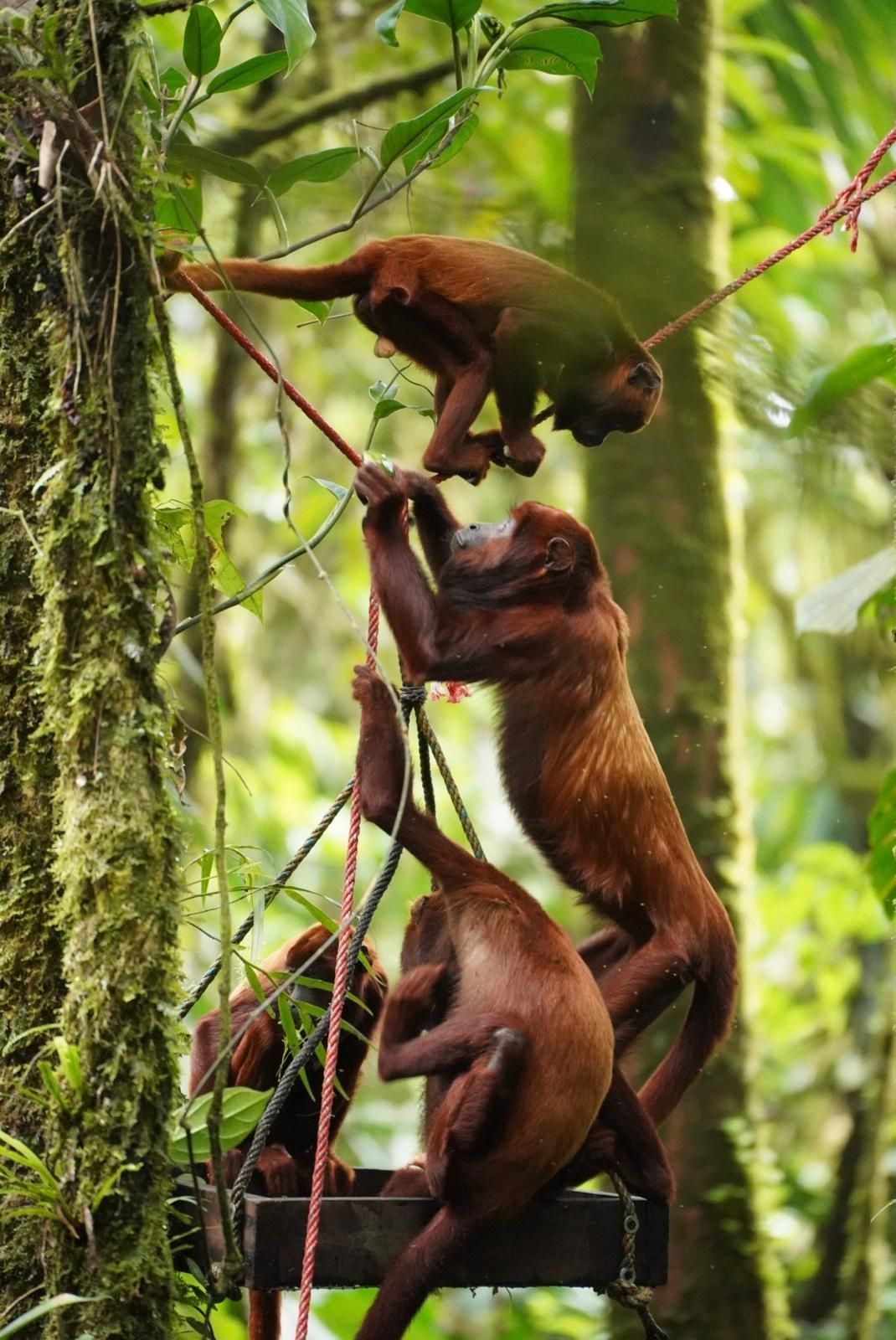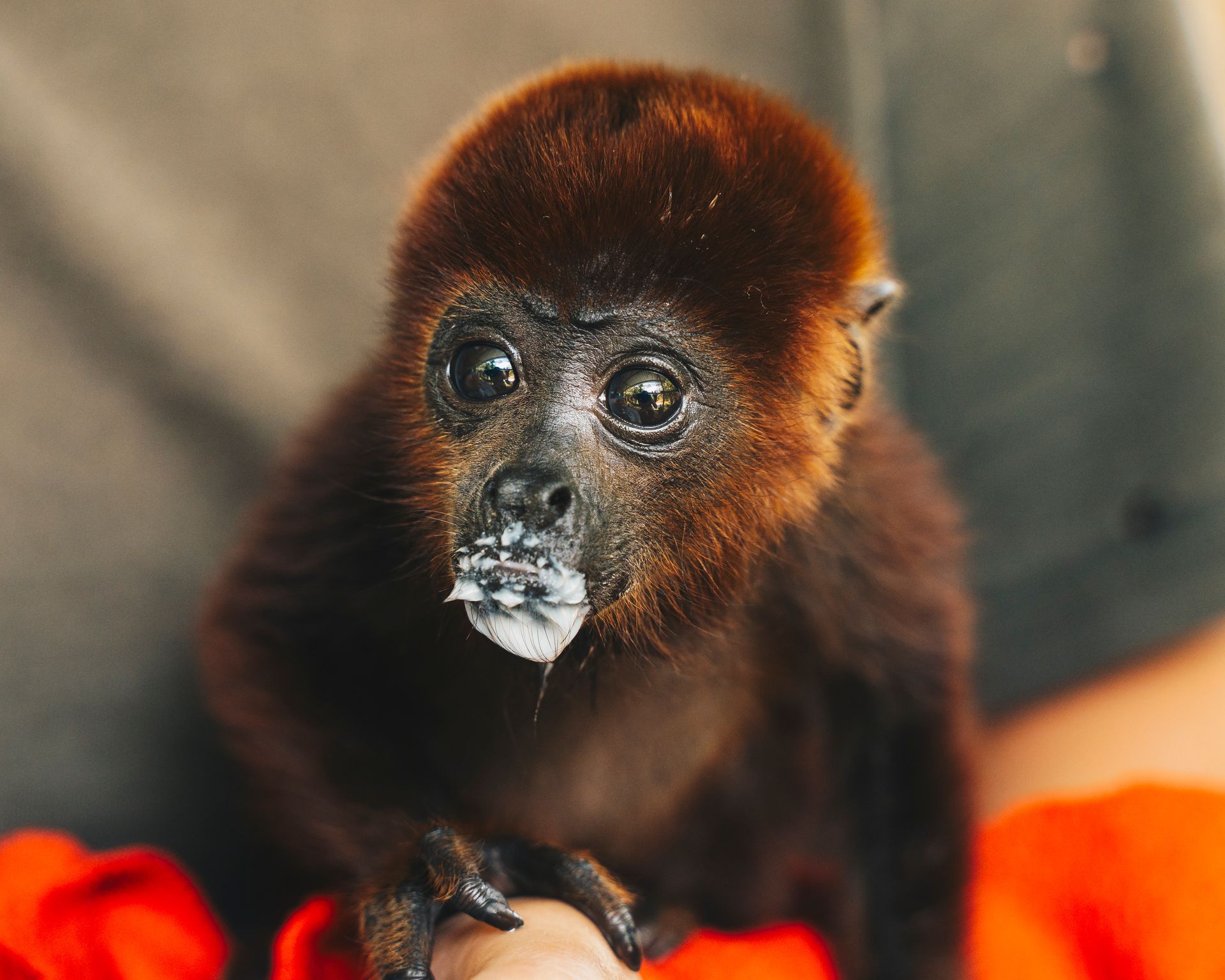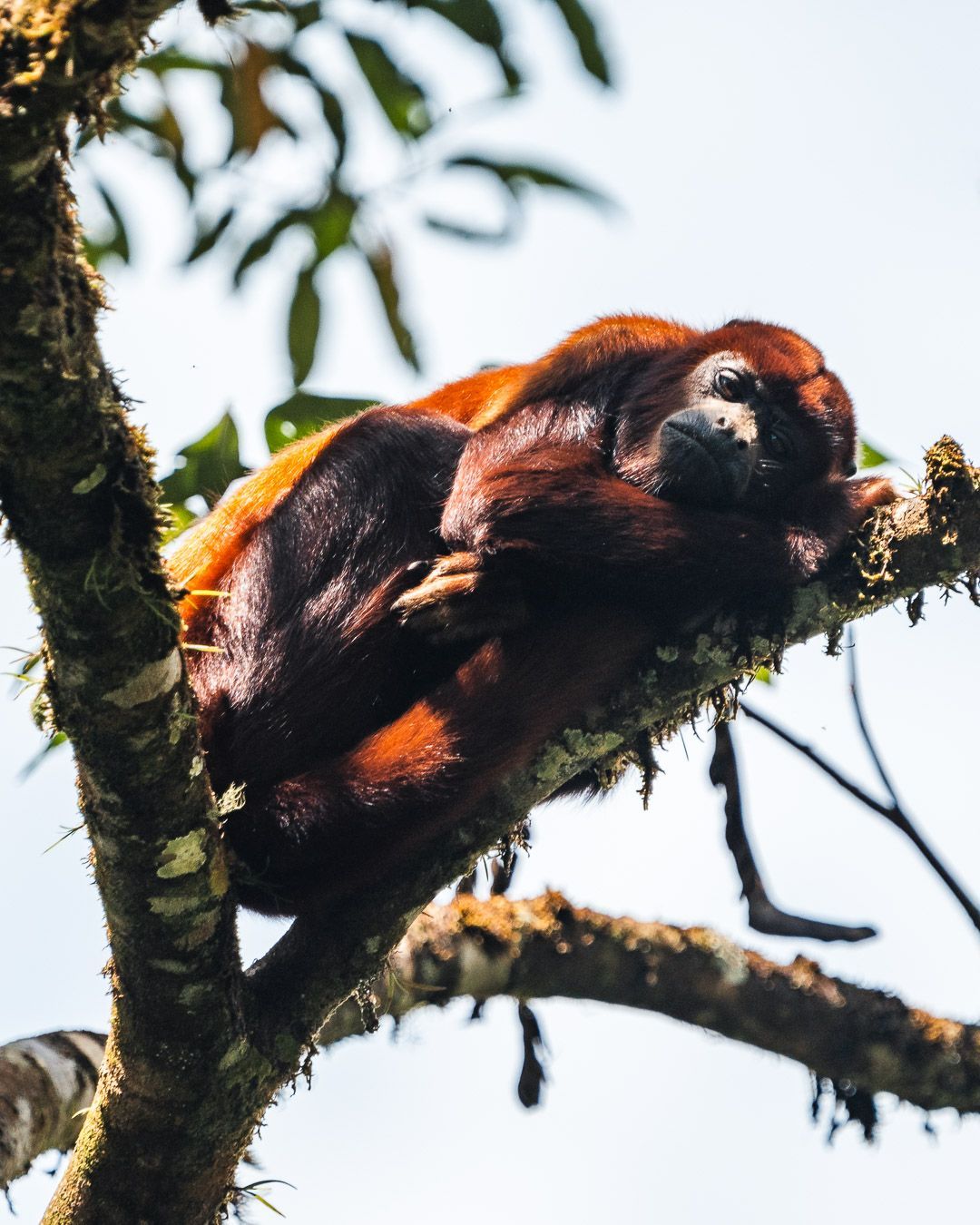Our Howler Release Project
When we started Merazonia back in 2004, the red howlers were either killed or fled this part of the Amazon. But thanks to our reintroduction program, their howls can now be heard again!
We began our howler program back in 2011, with the arrival of the first orphaned howler Neve. With her, we embarked on a bumpy ride to bring the red howlers back into the wild. With success: in 2018, Neve was released with the first group of howler monkeys, rehabilitated by Merazonia.
Since then we have received over twenty howlers and their rehabilitation has been both amazing and challenging for us as care takers, as they are extremely sensitive animals. But we have successfully established a strong rehabilitation program and have now released three groups back into the reserve.
Our second release consisted of several other females. We only received females until adult male Floki entered the scene. He appeared to have been a busy man because a couple of months after his first interactions with our released girls, we noticed some baby bumps: 2 females were pregnant!
Monkeys born in the wild is a massive milestone for us! Now, we are painting the next dot on the horizon: having a third generation born in freedom. The IUCN considers this a fully successful reintroduction. It is a dot that is at least 6 years away from us. But we are confident we’ll get there with your help!
In the mean time, we have started a fourth gradual release with 4 juvenile howlers: Pepi, Frodo, Freya and Akira. They are just starting to learn what it is like to live free in the jungle.
To make sure we can continue to monitor the released animals, we follow them with the help of tracking devices and people that document their progress. In the mean time we keep receiving (often weakened) orphaned babies that require expensive medical care and specialist diets.
Continuity is key and brings amazing results. But it costs money. Your help is vital to keep us on the path of successfully reintroducing red howlers into the wild. Now and in the future.




